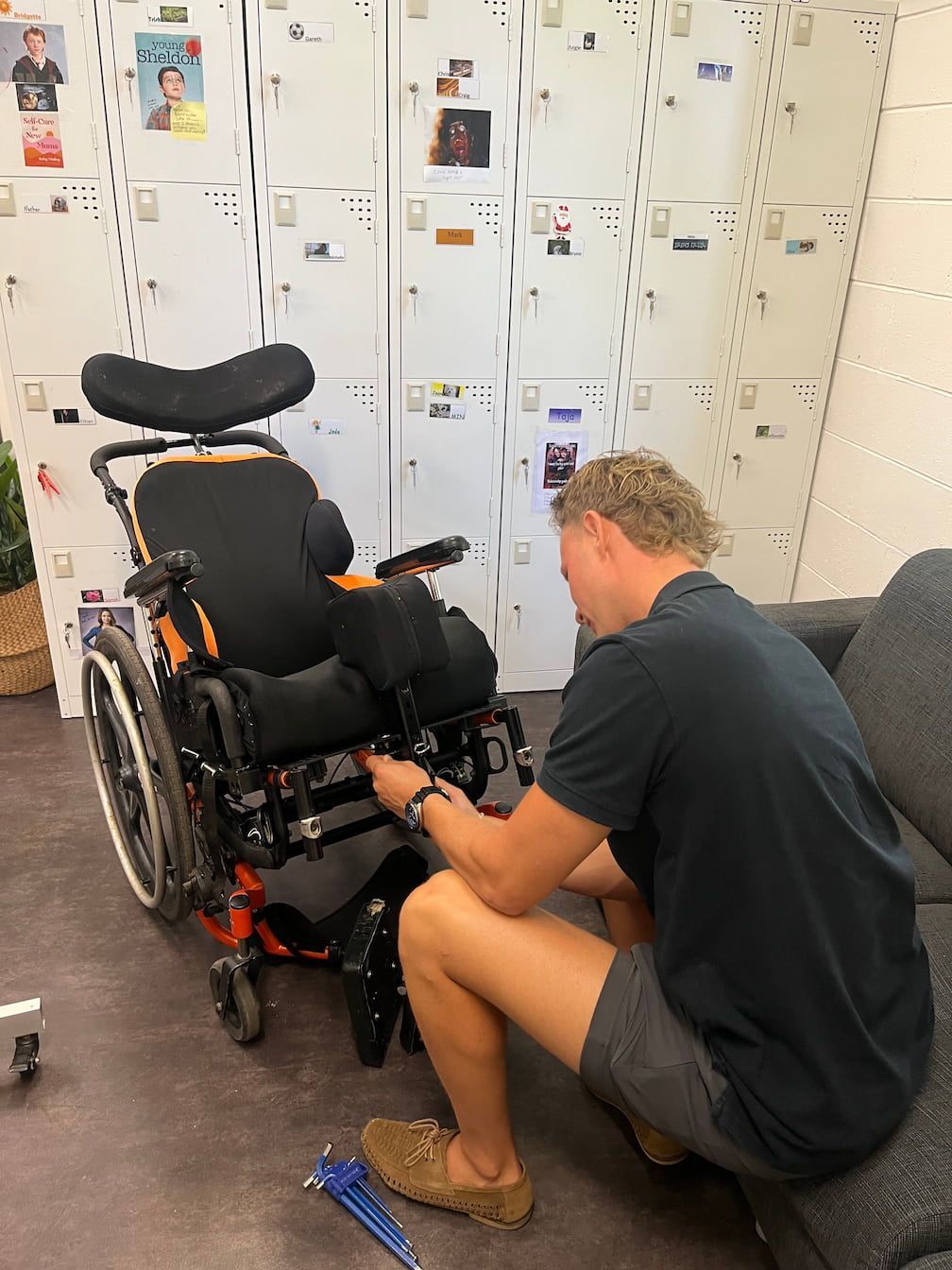The Benefits of Occupational Therapy
Occupational therapy plays a crucial role in improving the quality of life for people of all ages who experience physical, cognitive or emotional challenges.
In this blog, we’ll explore some of the key services occupational therapists provide and the benefits of working with an OT.
Functional Capacity Assessments
A Functional Capacity Assessment (FCA) is designed to evaluate a participant’s ability to perform everyday tasks and to identify their strengths, challenges and support needs across various areas of daily living. The primary objective of a FCA is to provide detailed information about the participant's functional limitations and capacities, ensuring that they receive the necessary support to achieve their personal goals, increase independence and enhance their quality of life.
In alignment with NDIS guidelines, a FCA assesses a participant’s abilities in several key areas, including personal activities of daily living (PADLs), instrumental activities of daily living (IADLs), mobility, communication and the use of assistive technology. The assessment documents these functional abilities and challenges, serving as a foundation for justifying the reasonable and necessary support needed for the participant’s NDIS plan. These supports may include tailored interventions, home modifications, assistive technology or caregiver assistance.
The findings from the OT FCA guide the development of personalised intervention plans that address both immediate and long-term goals. By evaluating the participant’s ability to manage daily tasks and identifying areas where additional support is required, the assessment ensures that the NDIS plan comprehensively meets the participant’s functional needs. Whether the focus is on mobility aids, communication tools or improving daily living activities, a FCA ensures that the participant’s well-being and independence are prioritised in line with NDIS funding.
Capacity Building
Capacity building focuses on empowering individuals by enhancing their physical, emotional and cognitive abilities. Occupational therapists support clients in developing new skills or improving existing ones to increase their independence and confidence in daily tasks. This service is especially beneficial for people with long-term conditions, such as neurological disorders or developmental delays, who may require ongoing support to manage their health and well-being.
For example, capacity building may involve helping a person develop routines that promote mental health, teaching adaptive techniques for performing everyday tasks or working on fine motor skills to improve handwriting or tool use.
Capacity building is not only about improving physical abilities. It also addresses emotional resilience, social skills and the ability to problem-solve in challenging situations. This holistic approach ensures that individuals are better equipped to handle the complexities of everyday life, allowing them to lead more fulfilling lives.
Home Modifications
A key service provided by occupational therapists is the recommendation and planning of home modifications to improve accessibility and safety. For individuals with mobility issues or disabilities, their home environment can often become a barrier to independence. Occupational therapists assess the layout and functionality of a person’s living space and provide tailored recommendations for modifications.
Common home modifications include installing grab rails in bathrooms, widening doorways for wheelchair access, adding ramps and lowering kitchen counters for easier use. These changes make daily tasks more manageable and significantly reduce the risk of accidents. Occupational therapists work closely with builders, family members and caregivers to ensure that modifications meet the specific needs of the individual while maintaining comfort and functionality.
Home modifications not only improve safety but also enhance the individual’s ability to engage in meaningful activities within their home. Whether it’s cooking a meal, getting in and out of bed or using the bathroom independently, these adaptations can make a world of difference in a person’s quality of life.
Wheelchair & Seating Assessments
Wheelchair and seating assessments are vital for individuals who rely on mobility aids to move around comfortably and safely. Occupational therapists conduct comprehensive assessments to determine the most suitable wheelchair or seating arrangement for the individual, taking into account their physical condition, lifestyle and personal preferences.
The right wheelchair or seating setup can significantly improve a person’s mobility, posture and overall well-being. A poorly fitted wheelchair can cause discomfort, pressure sores or even long-term health issues like back pain. Occupational therapists ensure that the chosen mobility aid is tailored to the individual’s body size, posture needs and daily activities.
Additionally, wheelchair and seating assessments consider future needs. As conditions change over time, an individual’s mobility requirements may evolve. Occupational therapists provide ongoing support, adjusting seating or recommending new equipment to ensure optimal comfort and function as the individual’s situation changes.
Assistive Technology
Assistive technology is another area where occupational therapy can have a significant impact. This service involves the use of specialised devices that help individuals perform tasks they might otherwise find difficult or impossible. Assistive technology can range from simple aids, such as adapted cutlery to more complex systems devices like motorised wheelchairs.
Occupational therapists can identify the most appropriate assistive technology for each individual, considering their unique challenges and goals. For example, a person with limited hand function may benefit from a computer keyboard with large keys or speech recognition software. For individuals with cognitive impairments, tools like medication reminders or smart home systems can provide critical support for daily living.
The goal of assistive technology is to increase independence, reduce reliance on caregivers, and enhance participation in activities that are meaningful to the individual. Whether it’s enabling someone to communicate more effectively, control their environment or manage daily tasks, assistive technology can open up new possibilities for individuals living with disabilities or age-related challenges.
Conclusion
Occupational therapy offers a wide range of benefits, helping individuals lead more independent, fulfilling lives. Through services like functional capacity assessments, capacity building, home modifications, wheelchair and seating assessments, and the use of assistive technology, occupational therapists provide tailored support that addresses both the physical and emotional aspects of daily living.
By working with an occupational therapist, individuals can overcome barriers, improve their ability to perform everyday tasks, and engage more fully in their communities. If you or someone you know may benefit from occupational therapy, get in touch with Life Solutions OT on the Gold Coast.
Written By Alex Kiosses
Alex is a driven and dedicated OT with a diverse skill set acquired through a broad range of experience working within the community. His passion lies in assisting individuals by enhancing their access to environments, allowing them to enjoy the things they love and find important.
Site Links
Service Areas
Services
Open Hours
- Monday
- -
- Tuesday
- -
- Wednesday
- -
- Thursday
- -
- Friday
- -
- Saturday
- Closed
- Sunday
- Closed










